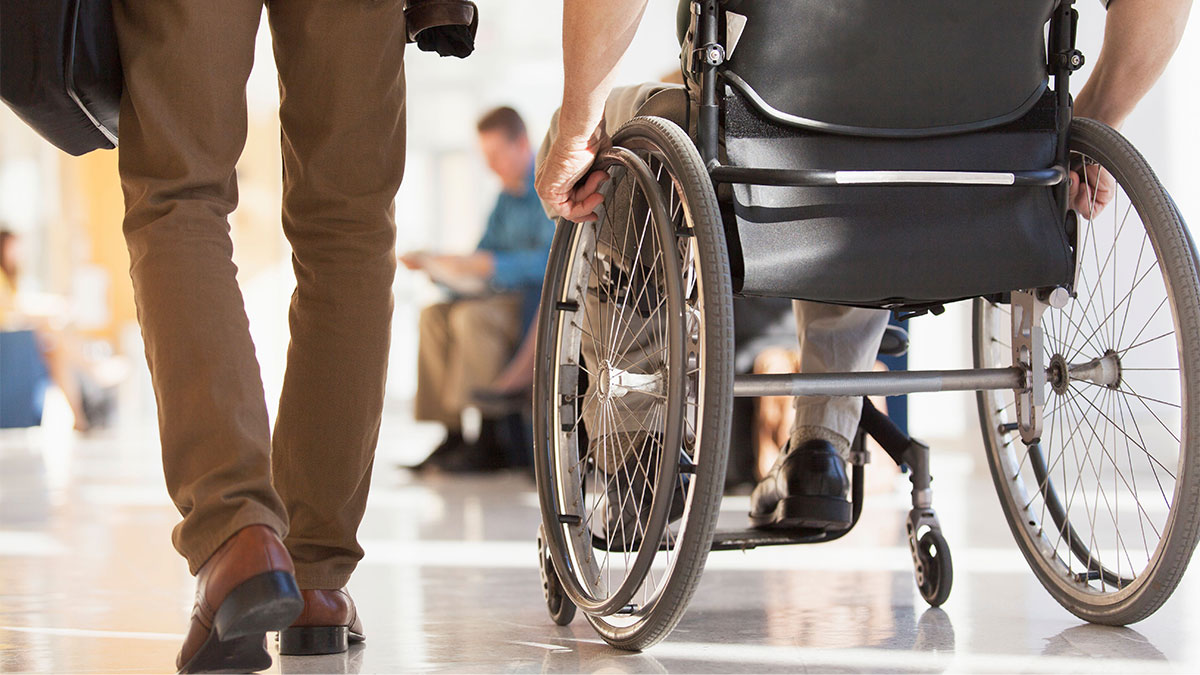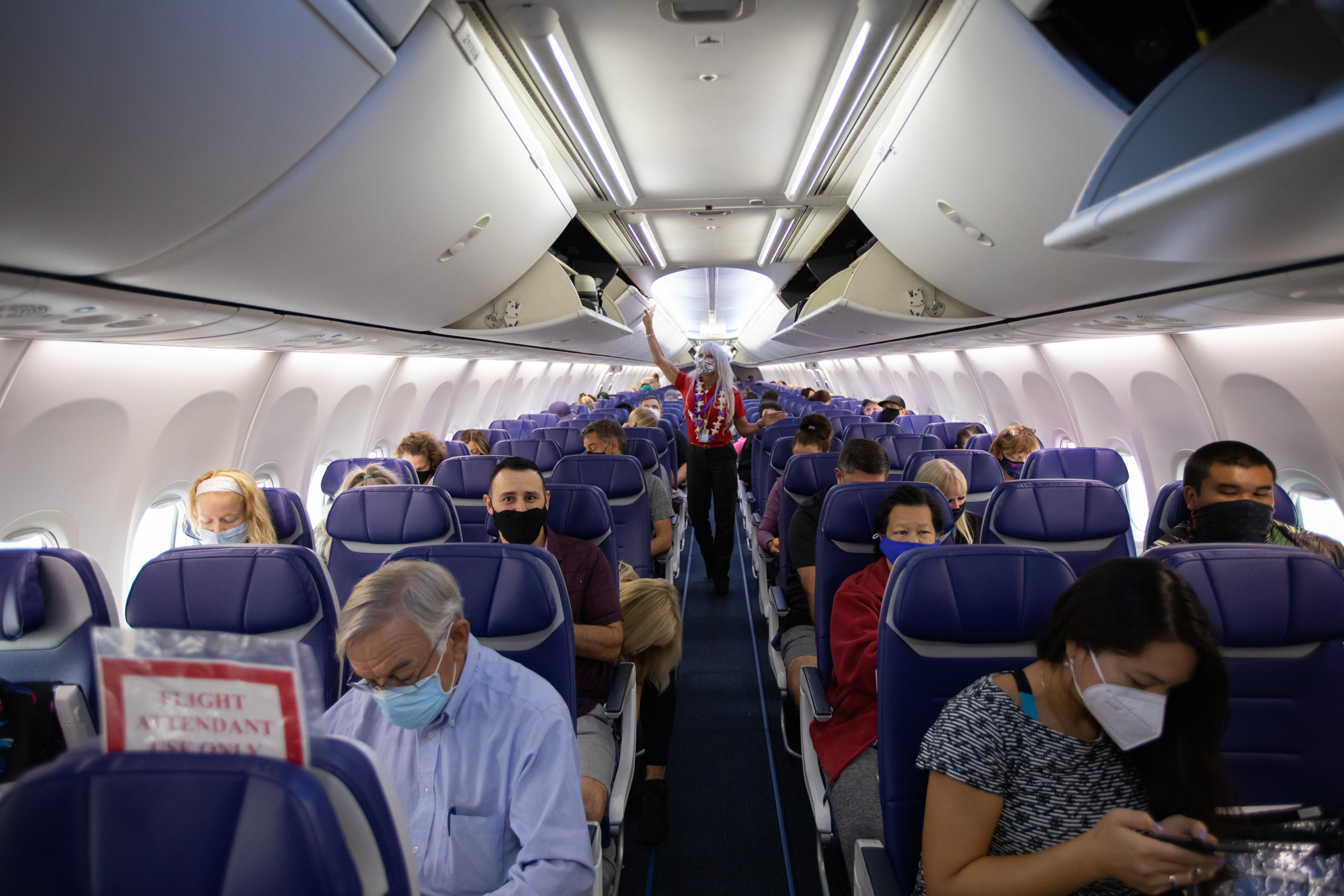Two Passengers Sued Emirates for “Deceptive Advertising” in New Zealand
The Dubai-based carrier has been ordered to pay more than $8,000 in compensation to a New Zealand couple who claimed the Business Class service they received wasn't what was advertised
by Lauren Smith
March 14, 2023
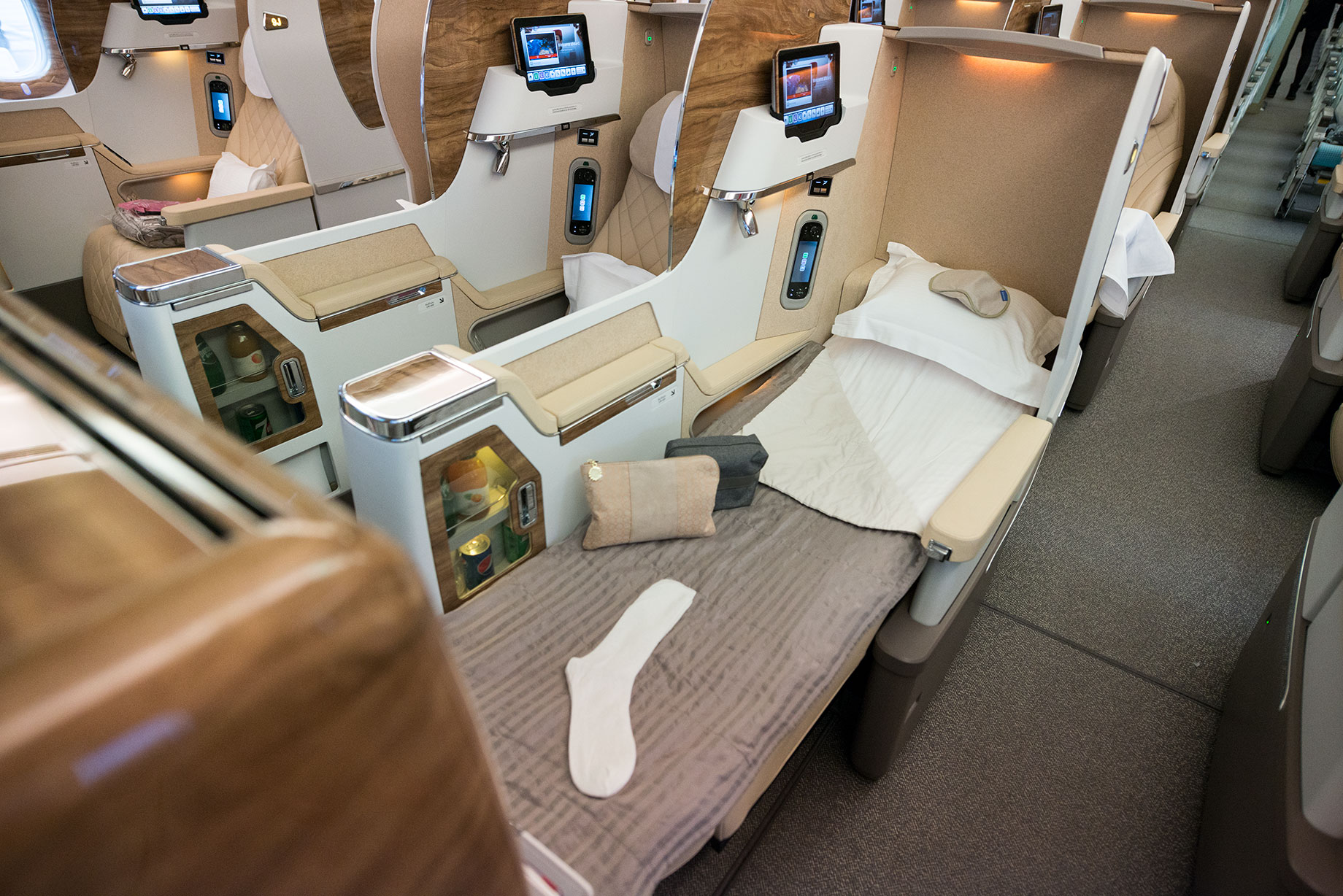
Photo: Business Class, Boeing 777. Courtesy of Emirates.
A New Zealand court has ordered Emirates to compensate a customer who alleged the amenities on his Business Class flight from Auckland to the United Kingdom didn’t match those in its advertising.
Mark Morgan and his wife splurged on a pair of Business Class tickets on Emirates, having seen advertisements for cabins in that class featuring fully-flat seats, updated entertainment systems, and personal minibars.
Their expectations aligned with the airline’s updated Business Class cabins on its Boeing 777-200LR and Airbus A380s—prominently featured in its promotional materials, including on the official Emirates site for the Kiwi market. Morgan claimed his ticket receipt showed a photo of these superior Business Class products.
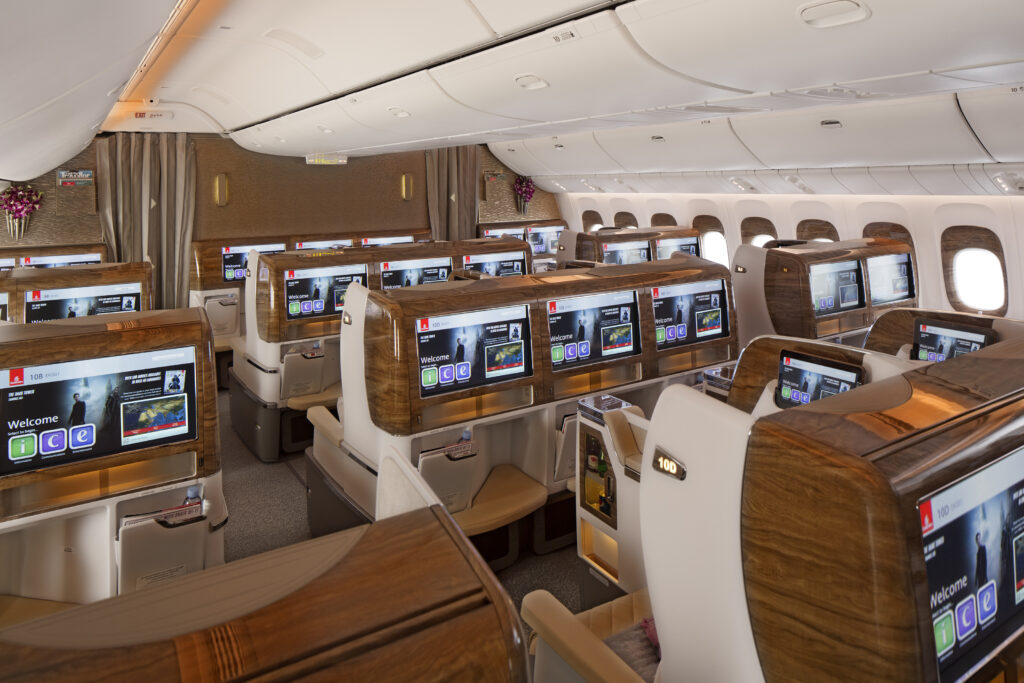
Photo: Business Class, Boeing 777. Courtesy of Emirates.
But when the Morgans boarded the flight, they discovered Emirates was operating older Emirates 777-300ERs with outdated Business Class cabins. Instead, the plane had seats that reclined to 166.1 degrees—not fully flat—and didn’t have minibars. Moreover, the 777-300ERs have the airline’s outdated 2-3-2 cabin configuration, whereas the 777-200LR has a more spacious, private, and updated 2-2-2 layout. Morgan subsequently brought a lawsuit against the company for false advertising.
Now New Zealand’s Disputes Tribunal has decided in his favor, ruling that Emirates’ advertising about the Business Class products in the country was deceptive.
Emirates argued that its contracts with customers permit it to swap the aircraft it operates on routes in response to operational requirements and says that its website warns travelers in small print that aircraft types aren’t guaranteed.
However, Disputes Tribunal referee Laura Mueller noted that Emirates wasn’t operating the planes with outdated cabins due to “an occasional or one-off change of aircraft” but rather as standard practice on its New Zealand flights.
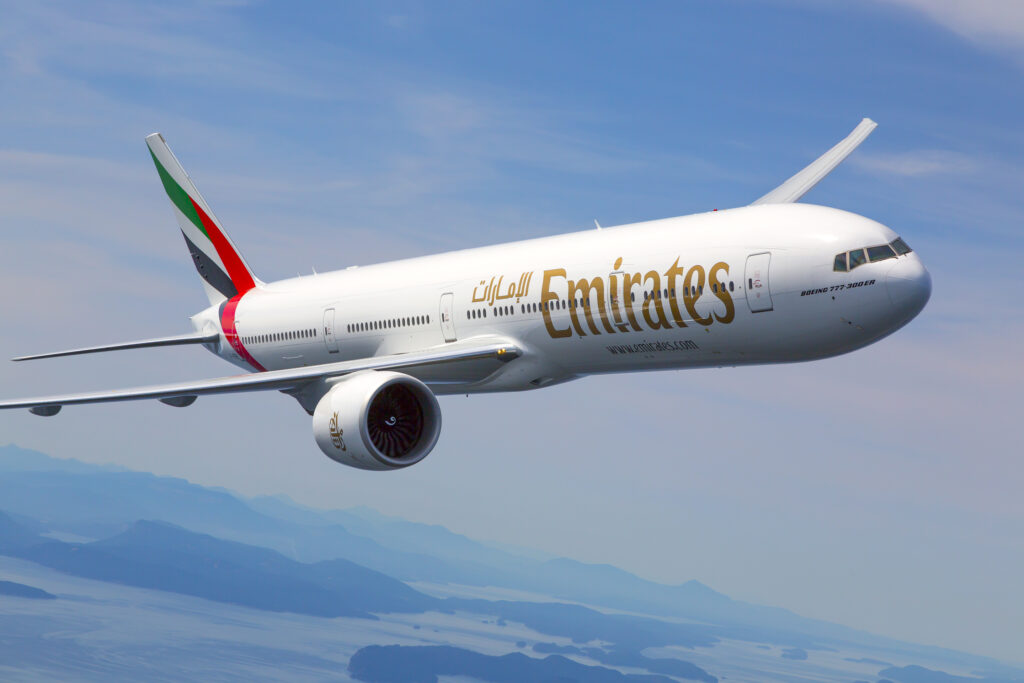
Photo: Boeing 777-300ER. Courtesy of Emirates.
“The promotional materials were based on an updated/new business class seat and service that is not in place in the older aircraft that Emirates flies to New Zealand,” she said.
Emirates further argued that it operated those older aircraft to New Zealand because the routes were loss-making and seats reclining to 166 degrees were effectively fully-flat for “ordinary travelers.”
Mueller also didn’t accept those arguments and ruled that “the advertising of a service that Emirates knew would unlikely be delivered is misleading and deceptive, ” violating New Zealand’s Fair Trading Act 1986.
Emirates initially offered Morgan a partial refund of NZ$786 (US$489), reflecting the 5% reduction in service it claimed he received compared to its advertising.
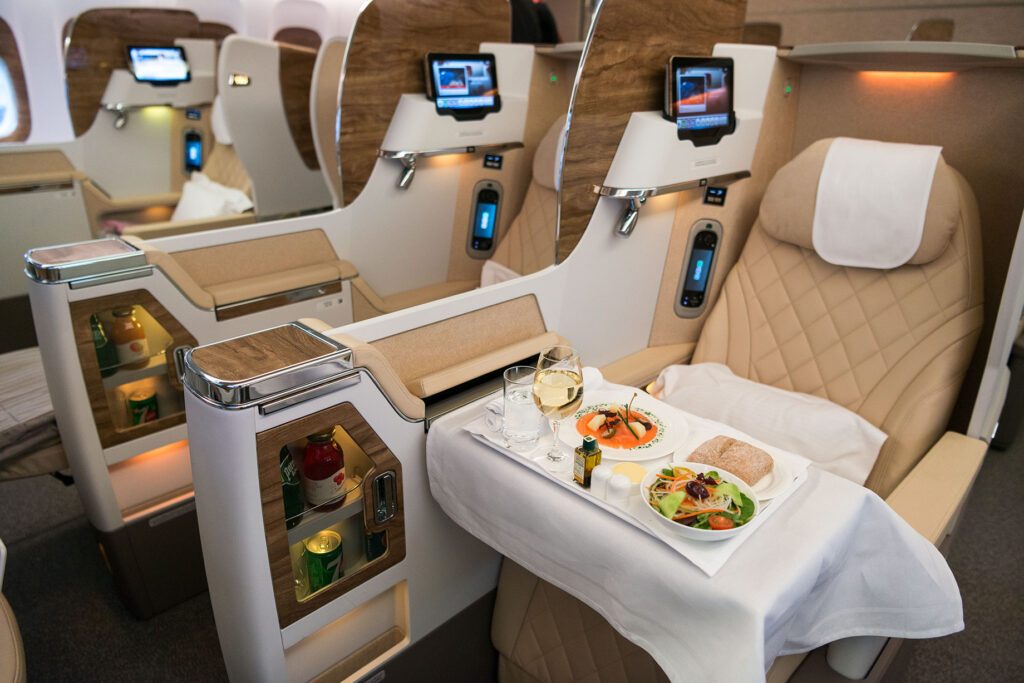
Photo: Business Class, Boeing 777. Courtesy of Emirates.
The tribunal ordered the Dubai-based carrier to pay him NZ$13,555 (US$8,440) instead, representing a partial refund for the price of the tickets and a refund for the cost of the upgrades he made to First Class on one leg so he and his wife could receive fully flat seats. The airline has until March 27 to pay Morgan.
Emirates is far from the only airline to advertise its best products and duck behind small print about operational requirements and aircraft changes when passengers end up in less well-outfitted cabins. Of course, savvy travelers can avoid this boarding call disappointment by researching exactly which aircraft the carrier operates on their routes.
Still, rulings like this out of New Zealand may prompt carriers to be more honest about their offerings in promotional material. At the very least, it may encourage Emirates to upgrade the lackluster business-class product on its Boeing 777-300s.
